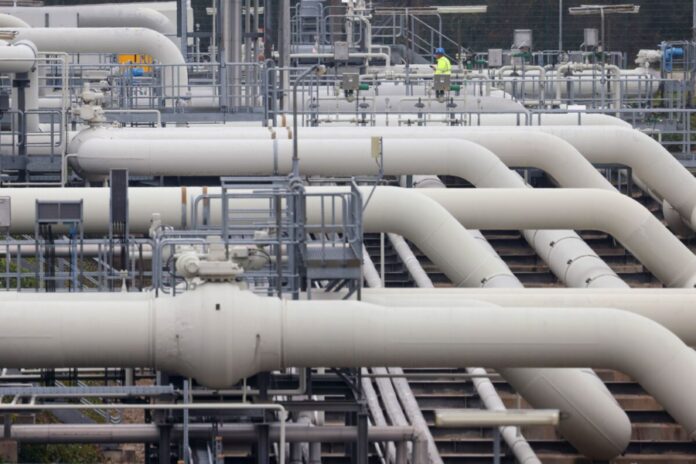European natural gas futures swung between small gains and losses early Thursday amid lingering concerns about the Middle East conflict and relatively muted demand prospects for the region, according to Bloomberg.
Benchmark contracts fluctuated after rising as much as 2.4%. Traders are still monitoring developments in the Israel-Hamas war — even though the conflict hasn’t had a major impact on global gas flows so far.
Overall demand for gas in Europe remains below historic averages, with mild and windy weather taking hold in parts of the continent. Together with high stockpiles — storage facilities are over 99% full — and Norwegian output recovering from summer maintenance, that’s helping to keep price gains limited for now.
“We are much, much better prepared than we were twelve months ago,” Germany’s Federal Network Agency President Klaus Mueller told the Sueddeutsche Zeitung newspaper. “If we get a normal winter, there should be no major problems.” However, it’s “still too early to sound a complete all-clear,” he added.
Wind generation has surged in parts of western Europe this week, further cutting demand for gas in the power sector, as Storm Ciaran moves over southern England to the North Sea. The center of the storm is now over the English Channel, with winds topping 200 kilometers per hour, weather service Meteonews reported early Thursday.
Still, the European gas market remains fragile after losing most of its previous Russian flows last year, which served as a buffer to cover suprise peaks in demand. Any major supply disruption globally, or a severe cold snap in Europe or Asia, could cause fresh price spikes.
“We are slightly misleading ourselves that the worst is over,” Niall Trimble, managing director of consultants Energy Contract Co., said at an FT event in London this week. The market will remain “a bit bumpy” until a new wave of global LNG supply kicks in around 2027, he said.
Dutch front-month gas, Europe’s benchmark, traded 0.7% lower at €47.41 a megawatt-hour by 9:06 a.m. in Amsterdam. The UK equivalent futures decreased 0.4%.


